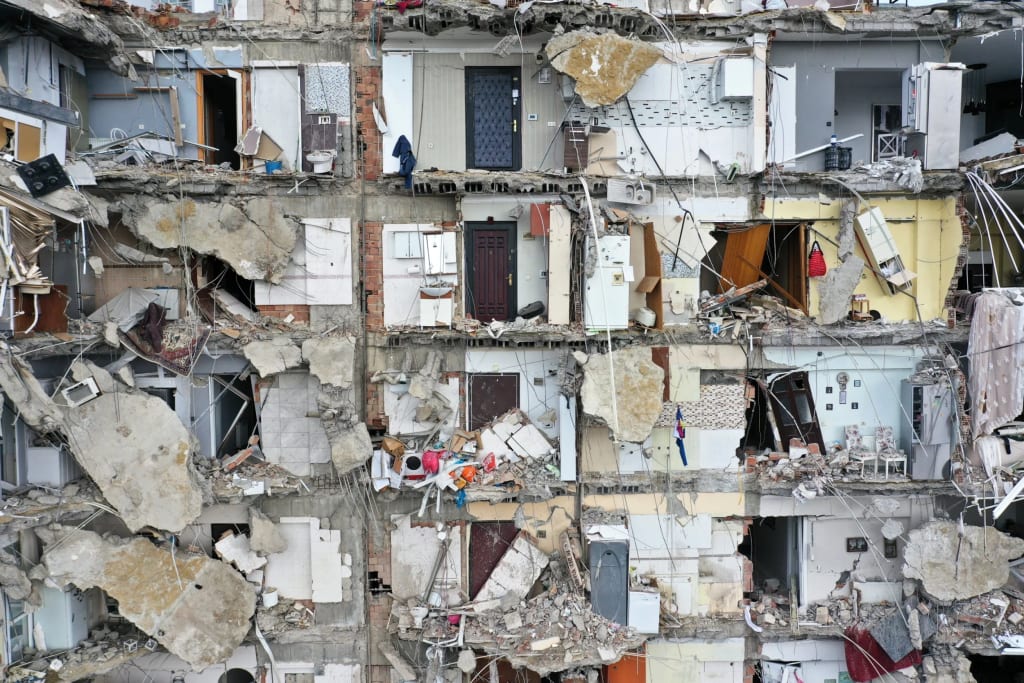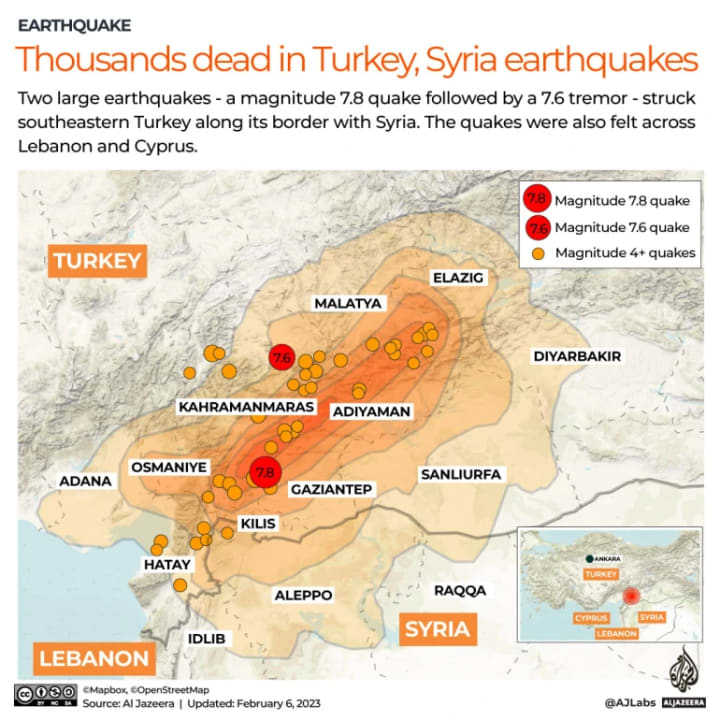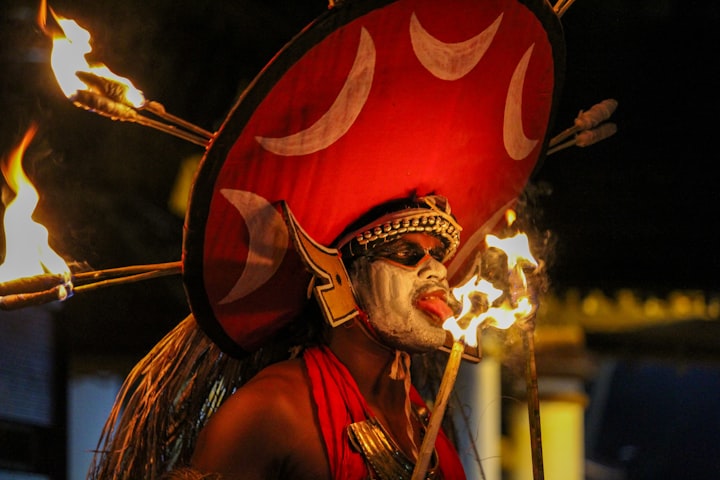
Casualties, now over 3,400, rose sharply after the first quake struck early Monday morning. About 12 hours later, a second powerful shock occurred further north.
Rescuers are scouring mountains of rubble in freezing and snowy conditions to find survivors.
Countries around the world are sending aid to rescuers, including teams of experts, search dogs and equipment.
The USGS said the magnitude 7.8 earthquake occurred at 04:17 local time (01:17 GMT) at a depth of 17.9 km near the city of Gaziantep. Seismologists said the first quake was one of the most powerful ever recorded in Turkey. According to survivors, the shaking stopped after just two minutes.
The second earthquake, which was caused by the first earthquake, had a magnitude of 7.5, and the epicenter was Elbistan, Kahramanmaras.
Many aftershocks are still being felt throughout the region.
The number of dead and injured in Turkey and Syria rose sharply throughout Monday. The WHO warned that number could rise eightfold as rescuers find more victims among the rubble.
"Unfortunately, we are seeing earthquake-like phenomena all the time," said a senior WHO emergency manager. europe." Katherine Smallwood told AFP.
Mr. Smallwood added that the risk would increase as many people would lose their homes due to the snowy conditions. Many of the victims are in war-torn northern Syria, while millions of refugees live in camps on either side of the Turkish border. Dozens of people have been reported dead in rebel-controlled areas. Thousands of buildings collapsed in both countries, and several videos show the building collapsing as spectators ran for cover. Many buildings as tall as 12 stories have been demolished, roads have been destroyed, and as far as the eye can see, huge mountains of rubble are visible.

Among the buildings destroyed was Gaziantep Castle, a historic landmark that has stood for over 2,000 years.
Anna Foster described the horrific scene while reporting from Osmaniye, a Turkish city located near the epicenter.
She said, “It is pouring rain right now, hindering the rescue operation. There is no electricity in the city tonight.
We are still feeling regular aftershocks. And there are still fears that more buildings may collapse. Turkey's energy infrastructure has also been damaged, and a video has been released of massive fires in southern Turkey. Social media users claimed that the gas pipe was damaged. Turkish Energy Minister Fatih Donmez confirmed that infrastructure was severely damaged, but did not comment on the blast.
Turkey is located in one of the most active seismic zones in the world.
The deadly northwest earthquake in 1999 killed more than 17,000 people. In 1939, the worst earthquake occurred in the Erzincan province in eastern Turkey, killing 33,000 people.
Melisa Salman, a resident of Kahramanmaras, said living in an earthquake zone means she's used to "shaking" but Monday's shock was "the first time we've experienced anything like this." “We thought it was the end,” she said. The Turkey Red Crescent urged citizens to donate blood, and group president Kerem Kinick tweeted that more blood and medical supplies are being sent to affected areas.

Turkish President Erdogan said 45 countries provided assistance after an international call for assistance. UN Secretary-General Antonio Guterres called for an international response to the crisis, saying that many families affected by the disaster "are in dire need of humanitarian assistance in areas that are already inaccessible".
The European Union is sending search and rescue teams to Turkey, and rescue teams from the Netherlands and Romania are already on the road. Britain said it would send 76 experts, equipment and rescue dogs.
France, Germany, Israel and the United States have also pledged their support. Russian President Vladimir Putin has offered aid to Turkey, Syria and Iran.
Turkish Interior Minister Suleimon Soylu said the quake affected 10 cities: Hatay, Osmaniye, Adiyaman, Malatya, Sanliurfa, Adana, Diyarbakir and Kilis.
Schools in these cities have been suspended for at least a week. A volunteer from the White Helmets Rescue Group operating in rebel-controlled areas of northwestern Syria barely held back tears as he described the devastation in Sarmada, near the Turkish border.
"Many buildings have collapsed in several towns and villages in northwestern Syria," he told the BBC.
“So far many families have been under the rubble. We are trying to save them, but it is very difficult for us.
“I need help. We need an international community to do something, to help us, to support us. Northwest Syria is now a disaster zone,” he added.
The earthquake was strong enough to be felt in Cyprus, Lebanon and Israel.
About the Creator
Leo
"A professional writer is an amateur who didn't quit" - Richard Bach






Comments
There are no comments for this story
Be the first to respond and start the conversation.